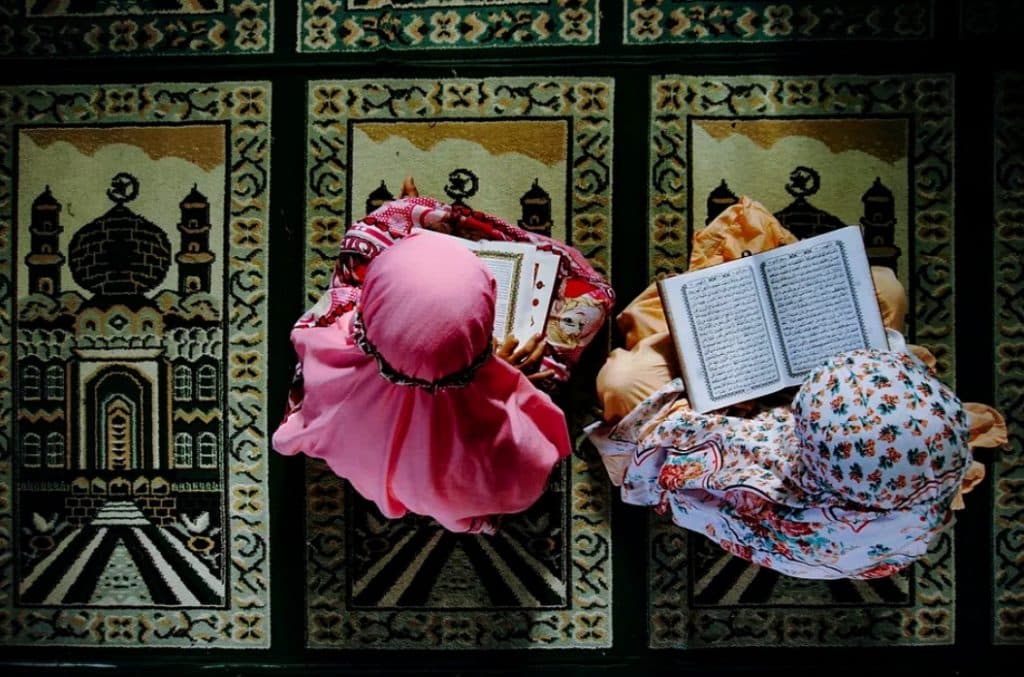Ramadan is considered one of the most sacred periods in the Islamic calendar, revered by Muslims worldwide for its significance. As an annual observance of spiritual introspection, self-discipline, and profound empathy towards the less fortunate, Ramadan stands as a pillar of the Islamic faith, serving as a period of reflection, devotion, and heightened acts of charity.
The purpose of this article is to provide a comprehensive understanding of Ramadan, its place in the Islamic lunar calendar, its meaning to Muslims, and a range of charity practices prevalent during this holy month. So, let’s dive into Ramadan charity tips.
Understanding Ramadan
Derived from the Arabic word “ramida” or “ar-ramad,” which signifies intense scorching heat and dryness, Ramadan symbolizes the burning of sins through the practice of fasting and acts of devotion. It marks the month during which the first verses of the Quran were revealed to the Prophet Muhammad, as per Islamic belief.
This period encourages Muslims to abstain from physical needs, focus on prayer, reading the Quran, and perform good deeds, to nurture a deeper sense of spirituality, patience, humility, and submissiveness to Allah (God).

When is Ramadan?
Ramadan is the ninth month of the Islamic lunar calendar, a calendar based on the phases of the moon. Due to this lunar foundation, the dates of Ramadan shift each year, moving forward approximately ten days annually in relation to the Gregorian calendar. The commencement and conclusion of Ramadan are determined by the sighting of the new moon, and it lasts for 29 or 30 days until the next new moon is sighted.
Significance of Ramadan to Muslims
For Muslims, Ramadan is a time of immense spiritual significance, wherein they seek to cleanse their souls, renew their relationship with Allah, and seek his blessings and mercy. It embodies one of the Five Pillars of Islam, Sawm (Fasting), which is obligatory for all adult Muslims, with exceptions made for those who are ill, pregnant, nursing, menstruating, or travelling.
Fasting from dawn until sunset, Muslims refrain from eating, drinking, immoral acts, and anger. Instead, they engage in increased prayer and recitation of the Quran, seeking to attain Taqwa – a heightened state of consciousness of God’s presence and His commands. The month concludes with Eid al-Fitr, a festive celebration marking the end of fasting.
Ramadan and Charity: A Sacred Bond
Charitable acts, or Sadaqah, form an essential aspect of Ramadan. This act of giving, however, goes beyond its monetary connotation, extending to any deed of righteousness performed to benefit others. During Ramadan, the rewards for Sadaqah are believed to be multiplied. Here are some ways you can practice charity during Ramadan:
1. Zakat
Zakat, or almsgiving, is considered one of the Five Pillars of Islam, obligatory for every Muslim who meets the necessary criteria of wealth. The fixed rate for Zakat is customarily 2.5% of a Muslim’s total savings and wealth, given annually to specific categories of individuals delineated in Islam, including the poor, the needy, and converts to Islam.
While Zakat can be given any time throughout the year, many Muslims prefer to give during Ramadan due to the increased reward. To expand on this practice, one could consider taking the time to learn more about local or international organizations that distribute Zakat and ensure that it reaches those in need.
2. Fitrana (Zakat al-Fitr)
This is a compulsory form of charity given at the conclusion of Ramadan. It is typically a small amount given on behalf of every member of the family, including children, designed to purify those who fast from any indecent act or speech and to help the poor and needy participate in the Eid al-Fitr celebrations.
Expanding this practice could involve giving Fitrana early in the month to ensure it benefits the recipient before the end of Ramadan or even providing extra support to those families you know may be struggling during this period.
3. Feed the Fasting
Providing food for the fasting is an act that carries immense rewards during Ramadan. This can be done by inviting others to break their fast with you at iftar (the meal after sunset) or by sending food to your neighbors or local mosque. To extend this practice, consider sponsoring iftar meals at local mosques, which often host community iftars, or partnering with charities that arrange food packs for the less fortunate.

4. Sadaqah Jariyah
This form of ongoing charity is one of the most rewarding acts in Islam because it benefits both the giver and receiver over time. Sadaqah Jariyah can include any act that continues to benefit others and earn you blessings even after your death. This includes initiatives like building a well, school, or mosque, planting trees, or contributing to an endowment fund that provides scholarships. You could extend this idea by setting up a sustainable project in a developing community or contributing to long-term development projects run by established charities.
5. Volunteering
Donating your time and skills can often be more valuable than monetary contributions. During Ramadan, many charitable organizations and mosques require extra help due to increased activities. You could volunteer your time at local food banks, participate in clean-up drives, offer your professional skills pro bono, or help in organizing and managing iftar meals. By extending this practice beyond Ramadan, you could leave a lasting impact on your community.
6. Donations
Making donations to charities that align with your values is a straightforward way of giving during Ramadan. These charities can range from local organizations serving your community to international ones providing healthcare, education, and disaster relief to vulnerable populations worldwide.
To expand this practice, consider becoming a regular donor or setting up a monthly donation plan. You could also take the time to research and support smaller, grassroots organizations that work on the ground and need financial support to maintain their operations.
Conclusion
Ramadan is a month of profound introspection, devotion, and compassion for Muslims worldwide. It’s a time where the act of giving takes on a heightened role, fostering a spirit of shared empathy and commitment towards the betterment of humanity. Embracing the values that Ramadan promotes indeed paves the way for a more understanding, patient, and compassionate world.
